Mechanical Characterization of Materials
The mechanical behavior of modern and future power semiconductor devices is increasingly determining functionality and reliability.
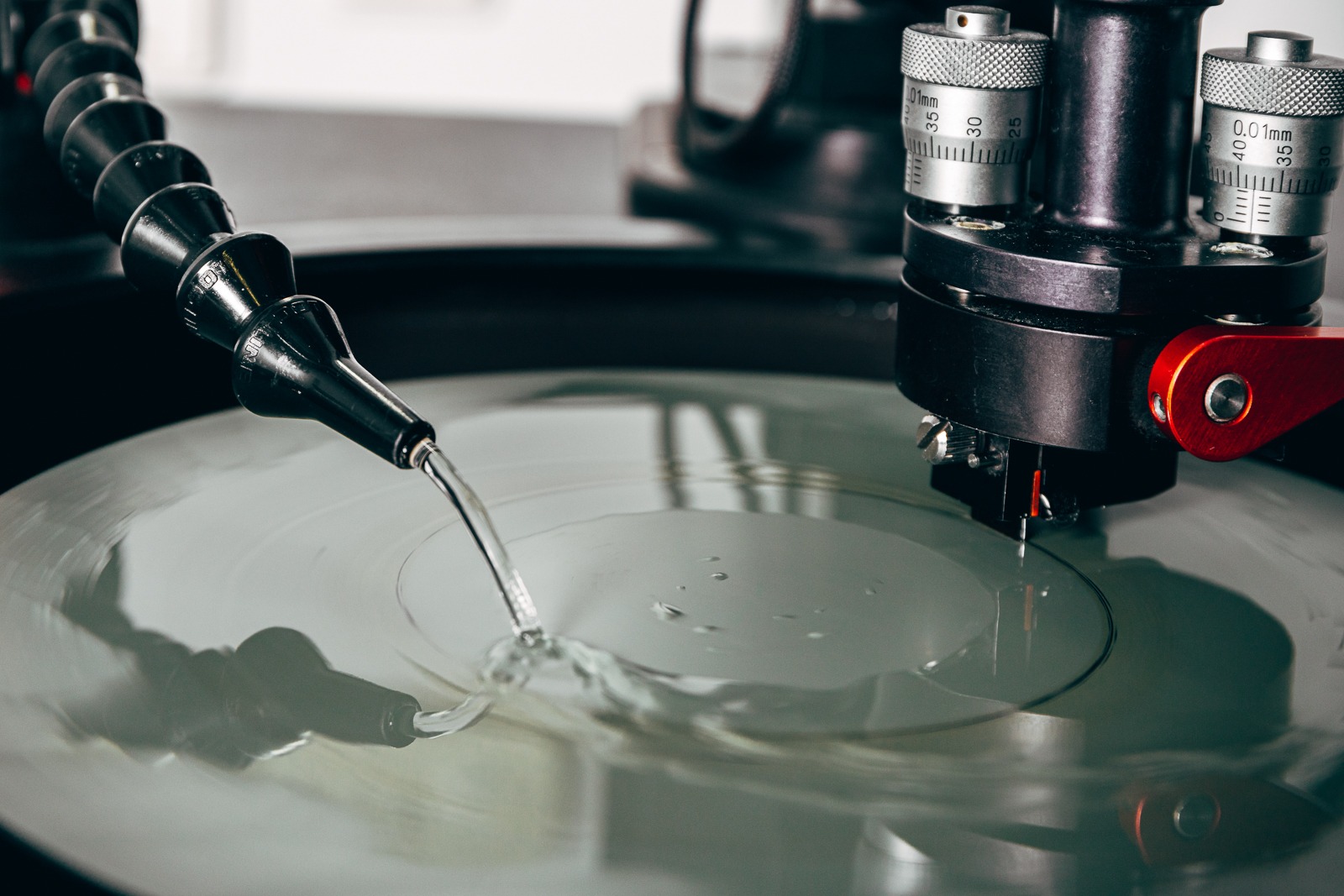
Functionality, reliability as well as shrinkage potentials of modern power semiconductor devices are increasingly determined by the mechanical behavior of the used materials.
Use of advanced materials, continuing device miniaturization and simultaneously increasing power densities represent major challenges to the mechanical integrity of power devices. Different mechanical failure modes can lead to production losses or decreased reliability during service, the most important are:
- Cracking in different metallization / dielectric layers.
Delamination of adjacent layers due to mechanical failure of the interface. - Damage due to mechanical and thermo-mechanical fatigue.
- In order to prevent mechanical component failure a thorough understanding of material and interface properties of the involved materials is required. The small material volumes present in the devices necessitate the use of advanced characterization and micromechanical testing techniques and frequently the development of new characterization techniques.
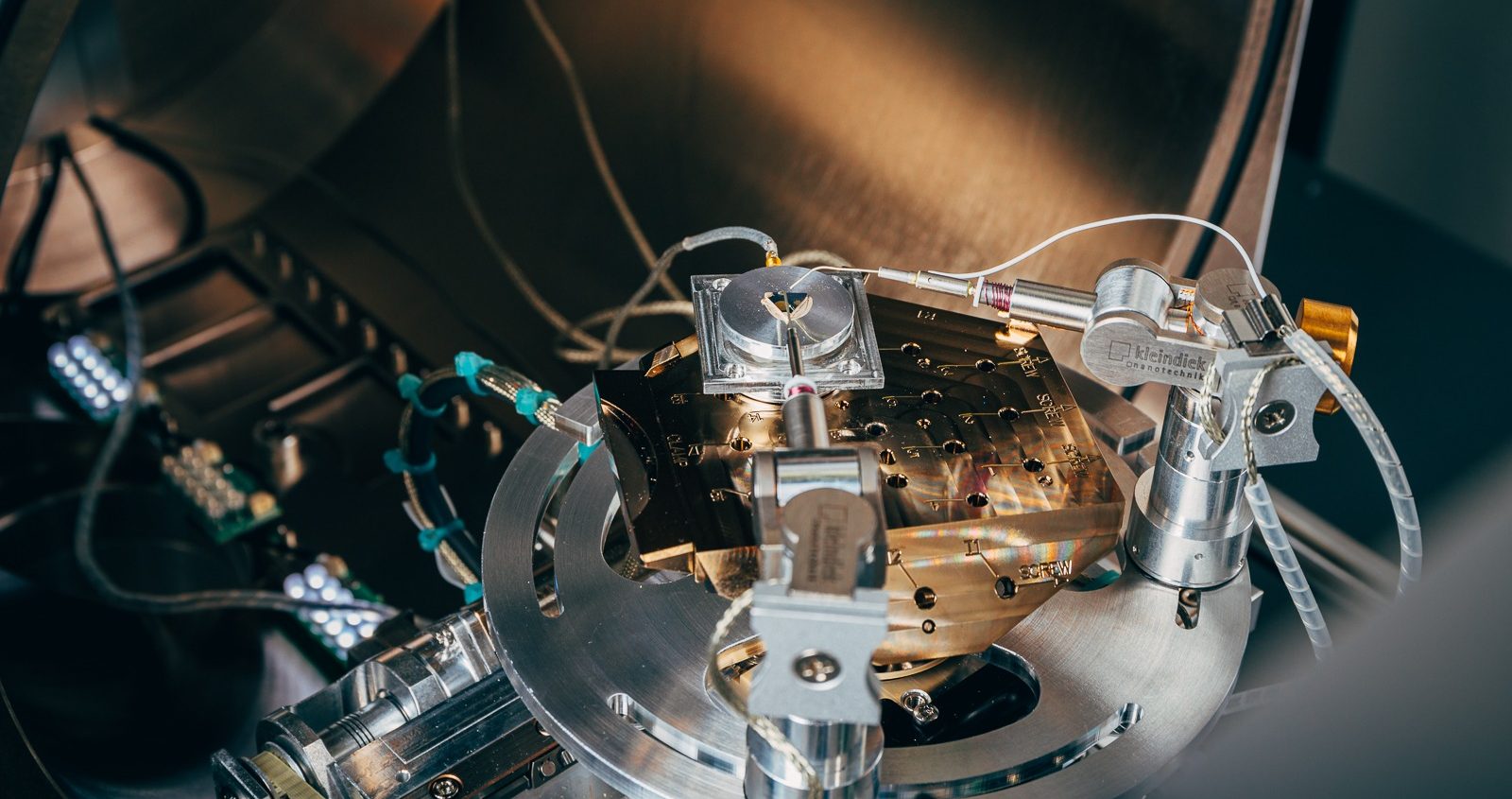
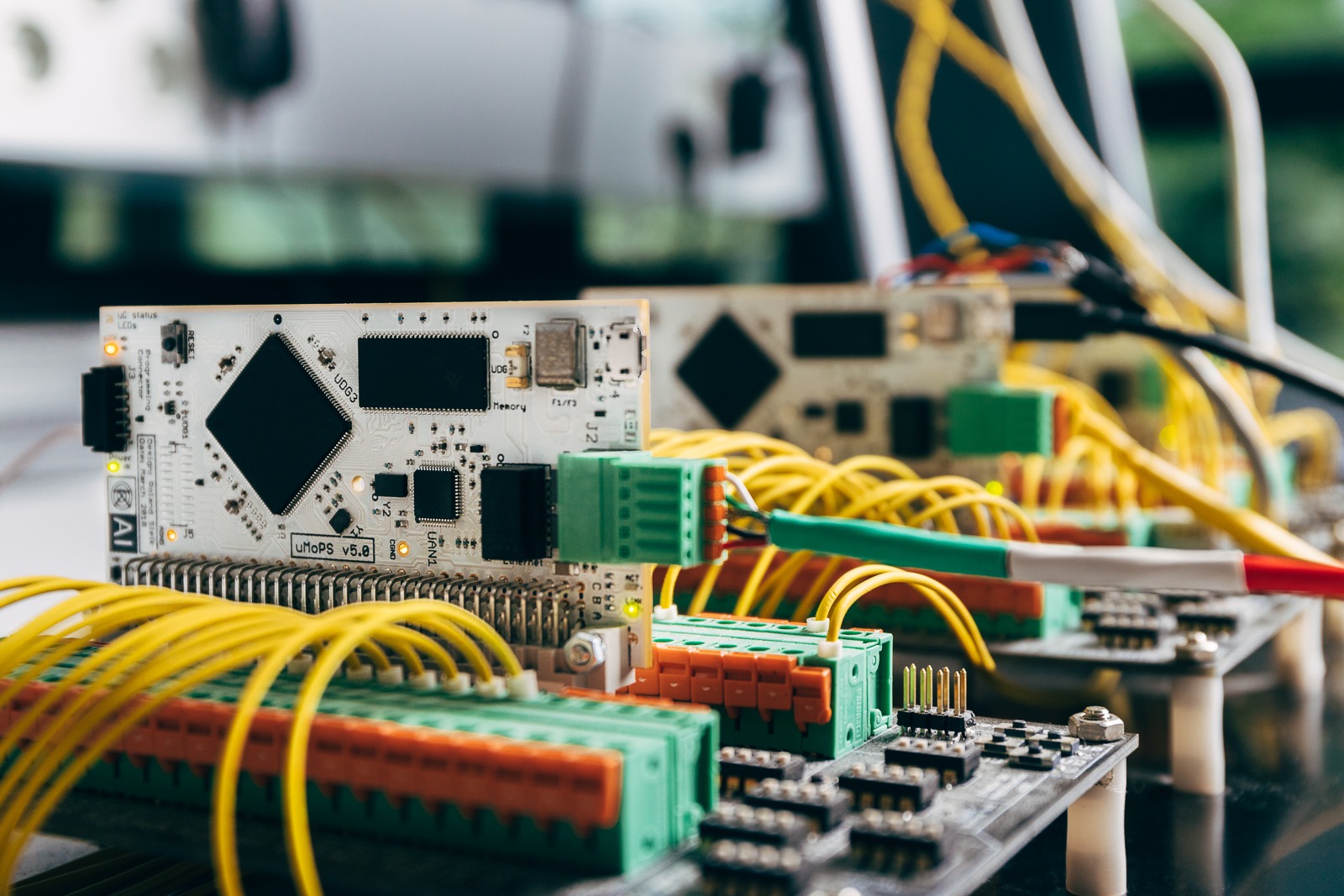
KAI Competences
KAI has been acquiring leading edge material research and mechanical characterization knowledge by closely cooperating with Montanuniversität Leoben, Erich Schmid Institut Leoben, Max-Planck-Institut für Eisenforschung Düsseldorf and Technische Universität Wien. Key competence has been established in the following areas of interest:
Temperature dependent film stress measurements in the range of -55 °C to 600 °C for wafers up to 200 mm.
High resolution residual stress measurement in thin films using focused ion beam, X-ray diffraction and transmission electron microscopy based techniques.
High-speed curvature measurements on power semiconductor test structures.
Quantitative interface adhesion and fracture toughness assessment using microcantilever and nanoindentation based testing.
Temperature dependent micro-tensile testing to investigate the plastic deformation behavior of ductile micro-electronic metallization materials at elevated temperatures.
Thermo-mechanical fatigue testing of metallization layers using custom designed semiconductor devices.
Mechanical investigations by nanoindentation between room temperature and 500 °C in protective gas atmosphere.
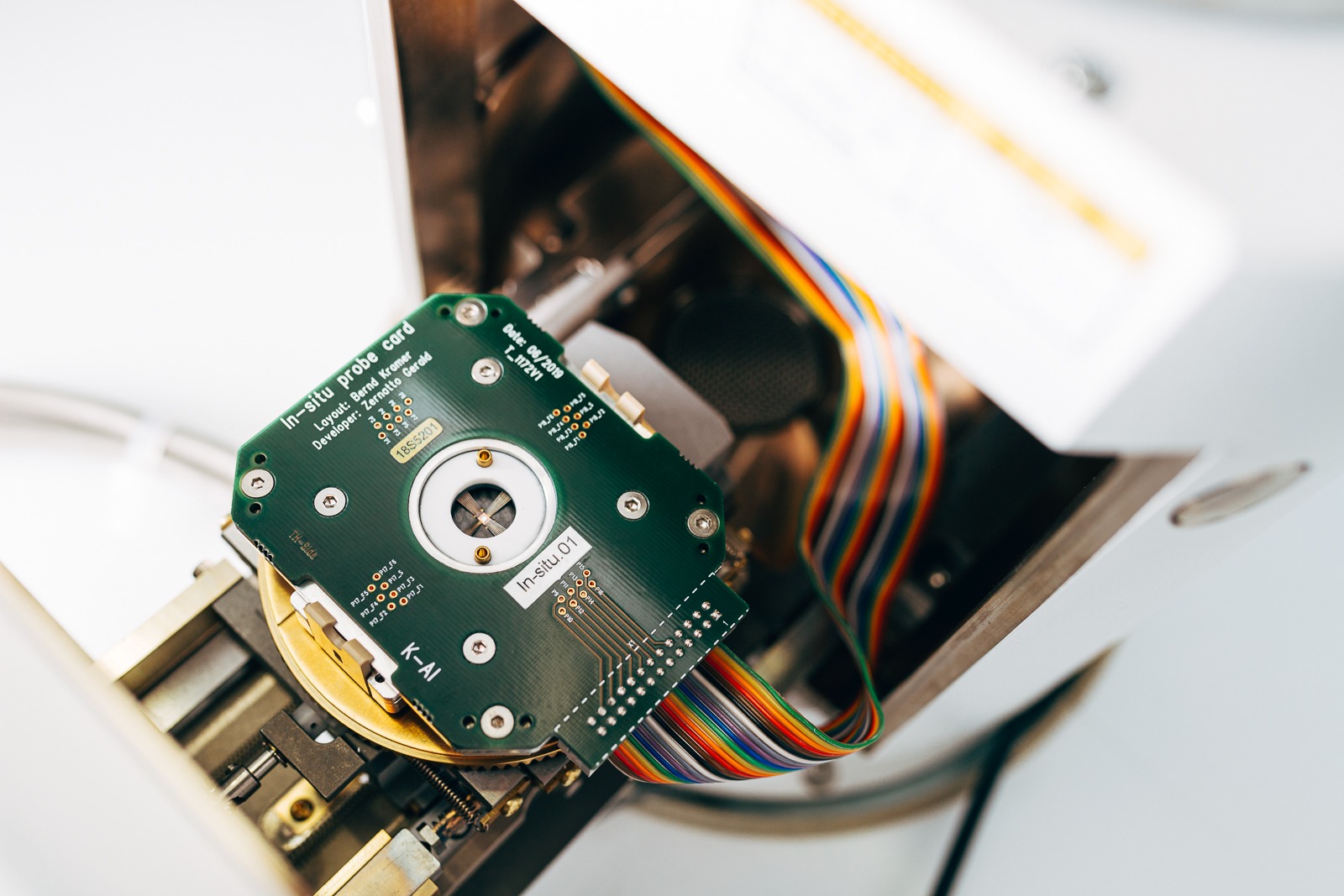
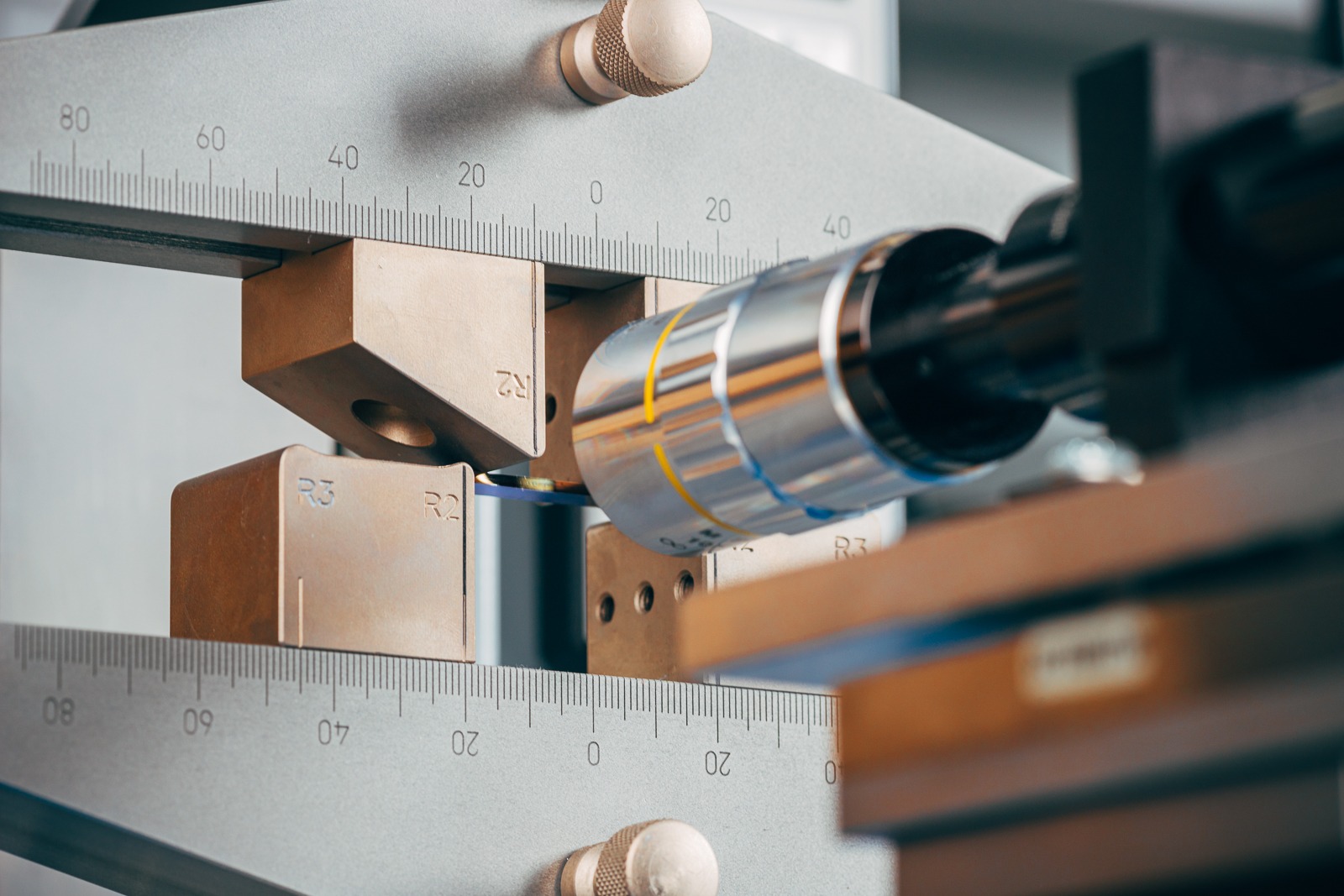
Research Goals
Improving power semiconductor resistance to mechanical failure during manufacturing and service necessitates a detailed understanding of each material in use, the interplay of all materials in the device and the influence of the processing and service conditions. Answering the following questions drives material scientists at KAI:
- How are manufacturing methods and processes influencing material microstructure, residual stresses and consequently the mechanical behavior?
- Which material analysis and mechanical testing methods are necessary to investigate materials used in microelectronics, especially focusing on thin metallic films?
- How can material models for finite-element-modeling be measured on thin film materials?
- How can thermo-mechanical thin film degradation be investigated under application relevant testing conditions on lab scale?
- Can nanoindentation based testing be used as quality control instrument to rapidly monitor fracture and adhesion properties in an industrial environment?
Material Science Laboratory
Follow this link to read more about our Material Science Laboratory.
